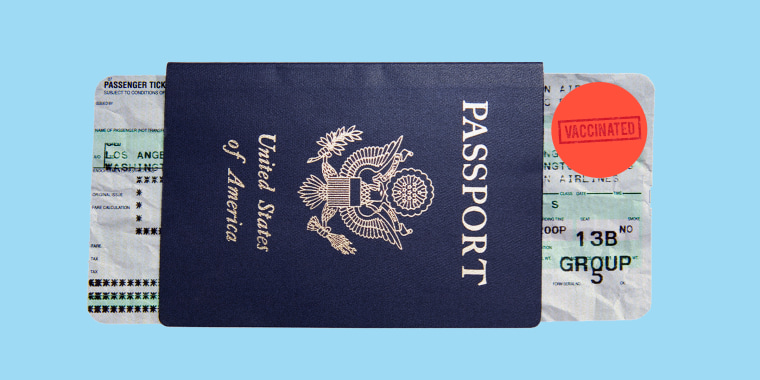The coronavirus pandemic has had a major impact on all kinds of travel: Many commuters are working from home or avoiding public transit, and border restrictions and fear of spreading the virus mean that nonessential travel has taken a dive.
However, the development and distribution of coronavirus vaccines may mean there's hope on the horizon: Experts say that once you've been vaccinated, it's likely safer to travel again. However, people should still exercise caution until more data is available.
"These two vaccines have 94 and 95% protection against serious COVID disease," said Dr. Chris Beyrer, a professor of epidemiology at the Johns Hopkins Bloomberg School of Public Health in Baltimore, Maryland. "It is certainly going to be safer to travel once you're immunized, but on the other hand, we also do not know the answer to the question of 'Are people who have been immunized still infectious for others?' ... That's a very important distinction."
The immunization process is also long: Three to four weeks have to pass between doses, depending on which vaccine a person receives, and the vaccine is not fully effective until about two weeks after the second dose, so people should keep that in mind when making plans.
Dr. Colleen Kelley, an associate professor of infectious diseases at Emory University School of Medicine in Atlanta, Georgia who is involved with the Moderna and Novavax vaccine clinical trials, said that normal travel patterns would likely not resume until large portions of the population are vaccinated, citing concerns about potential transmission to people who were not vaccinated.
"We need to get large numbers of people vaccinated before we're kind of free to go back to normal living," she said. "It's not like you have a force field around you if you've gotten a vaccine."
Take appropriate precautions
If you do have to travel after receiving a COVID-19 vaccine, experts recommend following standard precautions like wearing a mask and frequently washing your hands, as well as distancing from other passengers as much as possible.
"If you continue to wear your mask, wash your hands and social distance, yes, you can travel," said Dr. David Buchholz, the senior founding medical director for primary care at the Columbia University Irving Medical Center in New York, who noted that he has been using the New York City subway system since March. "I have absolutely no concerns about (the subway) because I do those things. So the vaccine should make you feel a little bit better, but you still need to do all of the stuff that you would have before."
Dr. Scott Weisenberg, an infectious disease specialist at NYU Langone in New York, said that any travelers should also consider their own risk if they do contract COVID-19.
"They would need to factor in the chances that they could get infected either before or during the trip," he said. "With the vaccine, the odds of that happening are much, much less, especially getting severely ill, but they would still want to make sure they factor that into decisions."
Beyrer also said that travelers should consider just how they will be traveling — driving in a personal car is safer than traveling by train, but if a train's windows can be opened for ventilation, that's safer than an option with less ventilation. It's also important to think about the places you'll pass through on the journey.
"It doesn't appear that planes themselves are areas where there's much transmission, but airports are, because they're crowded and it's hard to stay apart from other people," Beyrer said. "We know that cruise ships and other ships are tight indoor environments and have had very severe outbreaks, so it's probably too early to resume those activities."
Consider where you're traveling
Experts say it's also important to think about where you're going, and what the coronavirus rates in that area might look like.
"In our current surge, it's probably not ideal for people to be traveling, whether they're vaccinated or not," said Kelley, citing high rates of community transmission. "Let's remember there can be vaccine failures. We still don't know for sure whether asymptomatic spread is possible in vaccinated people. I think it's likely reduced ... We need some additional data before we fully understand the implications of the vaccinated person who is in a community where widespread transmission is still ongoing."
Weisenberg said that travelers should think about the health care that might be available in a certain area if they do happen to get sick or spread the virus to others.
"If somebody is going to be traveling to another area that has high-level health care, then they would have the same risk than if they were in a place where they have the same access to health care, unlike if they are traveling some place that does not have the same health care (such as) hospital access and oxygen availability and that sort of thing," he said.
Buchholz and Kelley said that what you plan to do once you arrive in your destination should be carefully considered: Kelley recommends avoiding crowds and following public health measures until community transmission is more under control.
"The issue of travel is not usually the travel itself, it's that you're often going somewhere to visit a group of people that are not part of your quarantine pod and therefore you're potentially exposing yourself and others," he said. "The risk when you're traveling is really who you're seeing on the other end, not the travel itself."



